Background
Eliminate Tobacco Use Texas is the initiative’s founding site. In 2015, Dr. David Lakey of The University of Texas System and Dr. Ernest Hawk, of The University of Texas MD Anderson Cancer Center, along with the EndTobacco™ Program team at MD Anderson and the Office of Health Affairs at UT System, created the Eliminate Tobacco Use Texas Initiative. The aim of the initiative was to first tackle tobacco use among the 14 University of Texas system institutions to more effectively lead larger statewide and national tobacco control efforts. The national initiative grew out of foundational work in Texas as the initiative’s first state site.
Texas Steering Committee
2025-2026 MEMBERS
Georgina (Gina) Arevalo
The University of Texas System
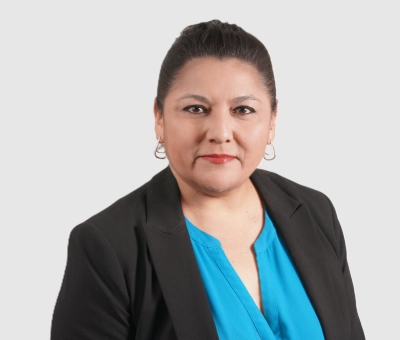
Georgina (Gina) Arevalo
Program Coordinator, Benefits and Wellness
The University of Texas System
Georgina supports students, faculty, staff, and guests across the University of Texas System. As part of the Benefits and Wellness office, she serves all UT campuses in various capacities.
J.C. Ausmus, Ph.D., L.P.C., N.C.C.
The University of Texas Permian Basin
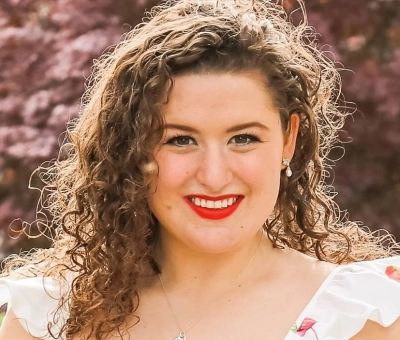
J.C. Ausmus, Ph.D., L.P.C., N.C.C.
Assistant Dean of Student Wellness
The University of Texas Permian Basin
Does your role focus mainly on students, faculty, staff, guests, or some combination?
Students
Why are you passionate about creating a smoke-free campus?
As the granddaughter of somebody who died from lung cancer as a result of years of smoking, I understand the detrimental impact of tobacco use not only on the tobacco-user, but on the individual's entire family at a deep, personal level.
Michelle Beall, Pharm.D.
The University of Texas at Tyler
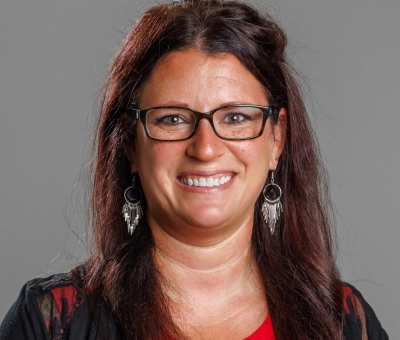
Michelle Beall, Pharm.D.
Director, Outpatient Pharmacy Practice Experiences
The University of Texas at Tyler
Michelle Beall, PharmD, is the Director of Outpatient Pharmacy Practice Experiences at the University of Texas at Tyler Ben and Maytee Fisch College of Pharmacy and a practicing pharmacist. She is passionate about student wellness, prevention and helping students develop healthier coping mechanisms through innovative, campus-based initiatives. Her work bridges experiential education and public health by translating evidence-based practice into engaging student experiences.
Does your role focus mainly on students, faculty, staff, guests, or some combination?
Combination
Why are you passionate about creating a smoke-free campus?
I am passionate about creating a smoke-free campus because it directly supports the health, well-being and long-term success of our students. College is a formative time when lifelong habits, both positive and harmful, are established. Reducing exposure to tobacco and nicotine helps protect students’ physical health, but just as importantly, it creates space for healthier coping mechanisms during periods of stress, transition and academic pressure. A smoke-free campus sends a clear message that we value prevention, wellness and evidence-based approaches to supporting students as whole people, not just learners.
What is one tobacco/vape control success - big or small, it's all important - that's happened on your campus in the last couple of years?
One meaningful tobacco and vape control success on our campus has been the integration of education and engagement around tobacco cessation into campus wellness programming. Through recurring events such as the Great American Smoke Out and targeted tobacco cessation activities, we’ve increased awareness of the health risks associated with tobacco and vaping while also connecting students to cessation resources provided by the university. These efforts have helped normalize conversations about quitting, reduced stigma around seeking help and reinforced healthier coping strategies during high-stress periods of the academic year. While incremental, this progress has been important in shifting campus culture toward prevention and support.
Policy, prevention or cessation programs to highlight:
Catch & Quit (2024) intentionally integrated Pokémon GO to meet students in a familiar and engaging digital space. The event leveraged in-game mechanics to encourage movement, participation and conversation, using the concept of “catching” Pokémon as an entry point to discussions about quitting tobacco and vaping. This gamified approach reduced stigma, increased participation and allowed health education and brief cessation counseling to occur organically in a low-pressure, student-friendly environment. The Great American Smoke Out (2025) was designed with a state fair–inspired theme to maximize visibility and engagement. The event featured interactive games, prizes and food to draw students in, creating a lively atmosphere where tobacco prevention and cessation messaging could be delivered in an approachable and memorable way. By pairing education with fun, incentive-based activities, the event successfully normalized quitting conversations and reinforced tobacco-free living as both attainable and supported on campus.
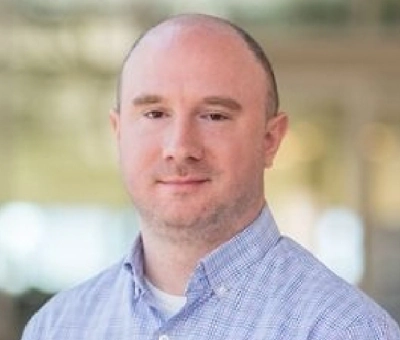
Corey J. Benson, M.Ed.
The University of Texas Permian Basin
Jennifer Cofer, Dr.P.H., M.P.H., C.H.E.S.
The University of Texas MD Anderson Cancer Center
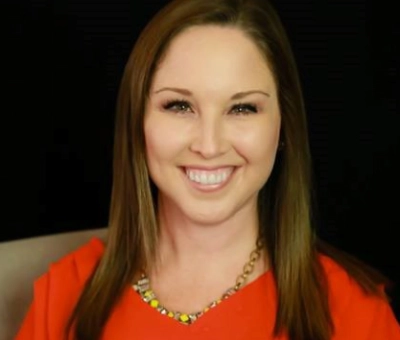
Jennifer Cofer, Dr.P.H., M.P.H., C.H.E.S.
Executive Director, EndTobacco™ Program and Cancer Prevention Policy
The University of Texas MD Anderson Cancer Center
What’s the most rewarding part of being on the ETU team?
When I took my first job in tobacco prevention, I had my grandparents in mind. I was exposed to their secondhand smoke my entire life. As a person with asthma and chronic lung disease issues, their smoke made me sick, and they didn’t know it. As I became more educated in my professional career about secondhand smoke, I had a huge desire to help them learn how to quit. I am proud to say that they quit 10 years into my tobacco control career. They were really proud, they let me know throughout my whole adult life what I was doing was making a difference. I actually have their ashtray on my desk at the office as a constant reminder. They both passed away in 2016, within three months of each other, from tobacco-related diseases. They are my why I chose tobacco control as my long-term career for 21 years. If they never started smoking, or if they had more access to be able to quit, I'd have my grandparents around today.
How has the Eliminate Tobacco Use initiative evolved over the years?
It started as a University of Texas System focused initiative and then grew to be inclusive of other higher education institutions in Texas. What we’ve created, we want to freely share. We’ve created some really great toolkits, resources, policy assistance and lessons learned that we can share among other like-minded institutes. We have now expanded beyond Texas and partner with the states of New Jersey, Missouri and Virginia who are replicating our model and expanding to serve their populations.
If you had a magic public health wand, what’s one thing you would like to see instantly changed about tobacco use?
I would remove flavored products. If the FDA removed those products from the market, we would see a decrease in tobacco use across the board, no doubt. If I can get a second wish, I’d say 100% smoke-free workplaces everywhere indoors, no matter where folks work.
Rosemary Coffman, Ph.D., C.R.C.
Lee College
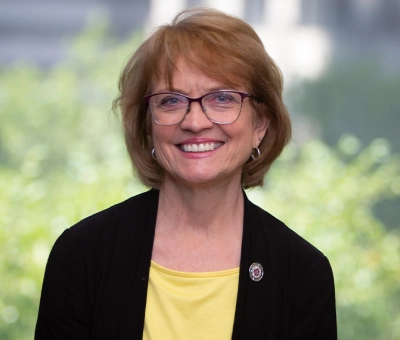
Rosemary Coffman, Ph.D., C.R.C.
Executive Director, Student Success and Wellbeing
Lee College
As the Executive Director of Student Success and Wellbeing at Lee College, Dr. Coffman has over 30 years of experience in student support and success in the areas of advising and counseling, disability services, veteran services, and veteran services. She oversees the College’s mental health services and education for the campus. Professional assignments on campus include the advisor to our Peers Against Tobacco student group, and chair of both the CARES Team and the Drug Free Campus Committee. Working with MD Anderson and the Be Well Baytown, she currently serves as the director of our Sun Safety and Tobacco Projects.
Bryanda Dominguez
The University of Texas at San Antonio

Bryanda Dominguez
Wellness Program Manager
The University of Texas at San Antonio
Does your role focus mainly on students, faculty, staff, guests, or some combination?
A combination of students, faculty, staff and guests
Why are you passionate about creating a smoke-free campus?
To protect non-users from secondary smoke
What is one tobacco/vape control success - big or small, it's all important - that's happened on your campus in the last couple of years?
Using the walking trails system to promote the ETU program
Policy, prevention or cessation programs to highlight:
Healthy Mondays will be used to promote the Eliminate Tobacco Use initiative. Studies show that Mondays are the day of the week tobacco users are most likely to choose as quitting day.
Learn more: www.utsa.edu/hr/wellness
Jodie Dominguez, M.S., C.R.C., L.P.C.
The University of Texas Rio Grande Valley
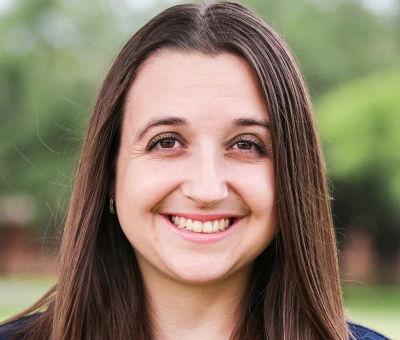
Jodie Dominguez, M.S., C.R.C., L.P.C.
Program Manager, Student Support & Well-being
The University of Texas Rio Grande Valley
Does your role focus mainly on students, faculty, staff, guests, or some combination?
My role primarily focuses on students.
Why are you passionate about creating a smoke-free campus?
Creating a smoke-free campus promotes the health and well-being of the campus community and beyond. Smoking and even secondhand smoke can have major health hazards. By eliminating smoking on campus, we can help reduce these health risks.
What is one tobacco/vape control success - big or small, it's all important - that's happened on your campus in the last couple of years?
UTRGV prohibits the use of all smoking devices and tobacco products on university property.
Lauren Dorsett, PH.D., M.S., M.C.H.E.S.
Texas A&M University
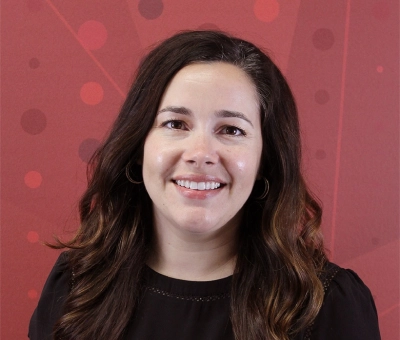
Lauren Dorsett, PH.D., M.S., M.C.H.E.S.
Director of Health Promotion
Texas A&M University
Lauren currently serves as the Director of Health Promotion in the Offices of the Dean of Student Life at Texas A&M University. In this role, Lauren provides oversight and guidance for the Health Promotion office, whose mission is to empower all Aggies to embrace a culture of holistic wellbeing that fosters their academic, personal, and professional success. Lauren has been working in the field of Health Education for 15 years, and has varied experiences with prevention education, curriculum development, assessment, and behavioral interventions. Lauren achieved her Bachelor of Science in Community Health and Master of Science in Health Education from Texas A&M University, as well as holds the title of Master Certified Health Education Specialist and Master College Health and Wellness Professional (MCHWP) certification through the American College Health Association. Lauren is pursuing a Doctor of Public Health Leadership from the University of Illinois - Chicago.
Nagla Elerian, M.S.
The University of Texas System Administration

Nagla Elerian, M.S.
Executive Director, Texas Mental Health Care Consortium
The University of Texas System Administration
Nagla Elerian is the Director of Population Health Strategic Initiatives at the Office of Health Affairs at UT System. Prior to joining the UT System, Nagla was the Director of the Center for Health Statistics at the Department of State Health Services. She has a Bachelor of Arts in Zoology and a Master of Science in Health Statistics with a minor in Geography. She has over 25 years of work experience in public health, health statistics and program management. Nagla worked in the areas of maternal and child health, birth defects, mental health and substance abuse, Medicaid managed care, and healthcare quality. In 1995, Nagla established the first electronic Birth Defects registry in Texas. In 1998, she established an evaluation program for Medicaid managed care where she initiated many improvements to the Medicaid managed care data and reporting. In 2000, she joined the NorthSTAR program where she initiated many reporting mechanisms to allow the use and sharing of data for program improvements. In 2007, Nagla joined the Decision Support unit at the Mental Health and Substance Abuse, where she developed through a multi-stakeholder collaboration the risk assessment tools to allow the state to evaluate and manage mental health centers and substance abuse providers using financial, access, quality and outcome indicators. She provided information and recommendations to the Texas Resiliency Disease Management workgroup for migration of the mental health assessment tool and worked with various stakeholders as she developed the algorithms for placement of eligible children into mental health services using the newly adopted Children and Adolescent Needs and Strengths (CANS).
Lou Ann Grossberg, Ph.D.
The University of Texas at Austin
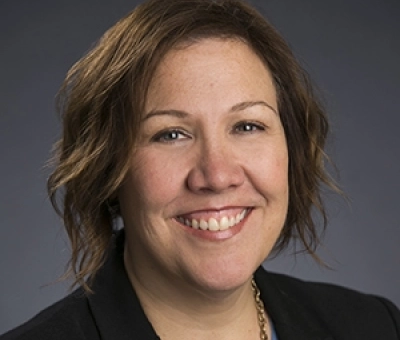
Lou Ann Grossberg, Ph.D.
Senior Research Program Manager, Tobacco Research & Evaluation
The University of Texas at Austin
Why are you passionate about creating a smoke-free campus?
I am passionate about creating tobacco-free campuses because it is an important step in reducing tobacco use and initiation of tobacco products among college age young adults, and addressing tobacco use among college age young adults is paramount given the tobacco use prevalence rates and the multiple risk factors for tobacco use in this population.
Policy, prevention, or cessation programs to highlight:
Texas College Tobacco Policy Database The Texas College Tobacco Project (Peers Against Tobacco)
Learn more: uttobacco.org
Ernie Hawk, M.D., M.P.H.
The University of Texas MD Anderson Center Center
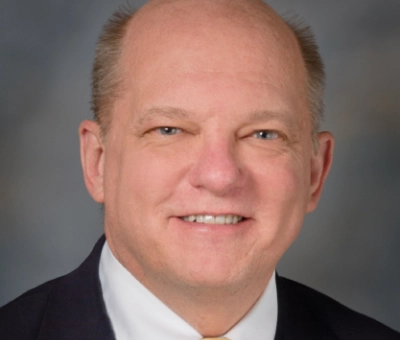
Ernie Hawk, M.D., M.P.H.
VP for Cancer Prevention, Head of Division of Cancer Prevention & Population Sciences Co-leader of Cancer Prevention & Control Platform
The University of Texas MD Anderson Center Center
Does your role focus mainly on students, faculty, staff, guests, or some combination?
Faculty, Staff, Patients, Community; not students because we have few/none
Why are you passionate about creating a smoke-free campus?
Advance population health and tobacco free environments at the population level. Campuses of higher learning serve populations that are at a critical age for deciding their long-term health practices. For example, related to tobacco adoption, recent data suggest that as many as 90+% of smokers begin their use before 21 years of age. Additionally, these campuses contribute many of our society's most influential leaders, who can then serve as advocates and change agents who value health as an aspirational, yet achievable, goal across our population well into the future.
What is one tobacco/vape control success - big or small, it's all important - that's happened on your campus in the last couple of years?
Development/growth of CTTTP, the post-CTTTP ECHO program of support, and the more recent tobacco cessation/prevention assistance program offered to FQHCs, CHCs, mental health orgs, VAMCs, and others who directly serve smokers in our population.
Aimee Israel, L.C.S.W.
UT Southwestern Harold C. Simmons Comprehensive Cancer Center
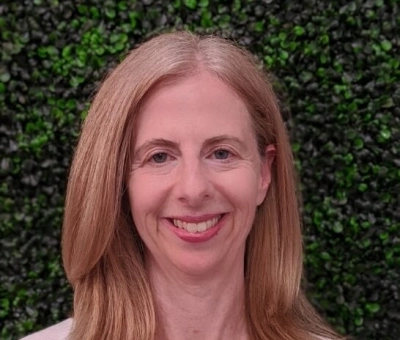
Aimee Israel, L.C.S.W.
Assistant Director, Office of Community Outreach, Engagement and Equity
UT Southwestern Harold C. Simmons Comprehensive Cancer Center
Does your role focus mainly on students, faculty, staff, guests, or some combination?
Faculty, staff, patients, programmatic
Why are you passionate about creating a smoke-free campus?
The more I learn about the impact of nicotine use, the more committed I am to leading efforts to ensure that every patient at Simmons Cancer Center has easy access to our nicotine cessation program.
Changing any behavior is difficult but that's especially the case when addiction is involved. For that reason, I feel especially privileged to work alongside clinicians who support patients on their quit journey.
What is one tobacco/vape control success - big or small, it's all important - that's happened on your campus in the last couple of years?
We are more systematically measuring cessation rates from our nicotine cessation program. This data will help us analyze which elements of our program are functioning well and which need adjustment. It's a critical quality improvement metric.
Policy, prevention or cessation programs to highlight:
The Nicotine Cessation Program at Simmons Cancer Center is available to all patients at UTSW. The program is currently delivered 100% via telehealth. Patients can participate in video or telephone sessions. Treatment is delivered by Certified Tobacco Treatment Specialists and an MD. There is no charge associated with provider visits. There may be a cost for medication, if prescribed.
Learn more: Nicotine Cessation Program
David Lakey, M.D.
The University of Texas System Administration
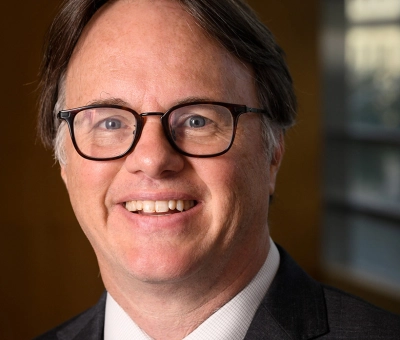
David Lakey, M.D.
The University of Texas System Administration
David Lakey, M.D. is the Vice Chancellor for Health Affairs and Chief Medical Officer at The University of Texas (U. T.) System, and Professor of Medicine at The University of Texas at Tyler Health Science Center. He serves as the executive sponsor for the Texas Collaborative for Healthy Mothers and Babies, the executive sponsor for the Texas Health Improvement Network, and as the presiding officer of the Texas Child Mental Health Care Consortium. He also serves on the state's COVID Expert Vaccine Allocation Panel
At the national level, Dr. Lakey was selected to serve as commissioner on the Commonwealth Fund Commission on a National Public Health System in 2022. Additionally, Dr. Lakey serves on the national boards of the March of Dimes and Trust for America’s Health, and on the Board of Scientific Advisors for the Center for Preparedness and Response at the Centers for Disease Control and Prevention. He served as president of the Association of State and Territorial Health Officials (ASTHO) from 2011 to 2012 and as the ASTHO Alumni President from 2019 to 2021. Dr. Lakey is a proud member of the Texas Medical Association (TMA) and America Medical Association (AMA). He has received numerous awards, including the 2015 TMA President’s Award and the 2021 AMA’s Foundation Award for Health Education.
Prior to U. T., Dr. Lakey was the Commissioner of the Texas Department of State Health Services, leading one of the largest state agencies with over 12,000 employees. He oversaw the state’s disease prevention and emergency preparedness programs, family and community health services, environmental and consumer safety, regulatory programs, and mental health and substance abuse prevention and treatment services. During his tenure he led his agency’s response through numerous high-profile events including the H1N1 pandemic, multiple hurricanes, and the Dallas response to Ebola.
From 1998 to 2006, Dr. Lakey served as an associate professor of medicine, chief of the Division of Clinical Infectious Disease and medical director of the Center for Pulmonary and Infectious Disease Control at the University of Texas Health Center in Tyler. Dr. Lakey graduated from Rose Hulman Institute of Technology, Indiana University School of Medicine, and completed his internal medicine, pediatrics, and infectious disease training at Vanderbilt University Medical Center.
Daniela Lerma, M.B.A.
The University of Texas at El Paso
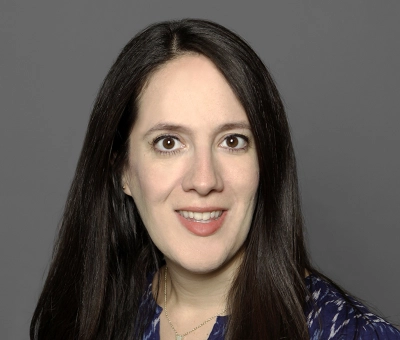
Daniela Lerma, M.B.A.
Wellness Manager
The University of Texas at El Paso
Does your role focus mainly on students, faculty, staff, guests, or some combination?
Combination of students, faculty and staff.
Why are you passionate about creating a smoke-free campus?
Why are you passionate about creating a smoke-free campus? I am passionate about UTEP being a tobacco and smoke-free campus because it demonstrates that we care about the health of our students, faculty, staff and the El Paso community. We set an example of the importance of educating people and creating awareness about health risks to tobacco users and to those exposed to second and third hand smoke. We help in creating an air of respect for our environment and community.
What is one tobacco/vape control success - big or small, it's all important - that's happened on your campus in the last couple of years?
We have been a tobacco and smoke free campus since August of 2013. Each year, we focus on enforcing the campus' policy amongst faculty, staff, students and visitors.
Learn more: www.utep.edu/tobaccofree
Misty Lewis, M.P.H., R.N.-C.T.T.S.
UT Tyler Health Science Center

Misty Lewis, M.P.H., R.N.-C.T.T.S.
Lung Nodule Program Manager
UT Tyler Health Science Center
Misty Lewis is the RN, Lung Nodule Program Manager in the Pulmonary Clinic at UT Health East Texas North Campus Tyler. She is responsible for the direct supervision of the lung nodule program. Mrs. Lewis has been a nurse for 20 years, as well as receiving her BBA in 2008 and then her MPH from the UTHSCT in 2019. Mrs. Lewis is dedicated to educating and serving her community and firmly believes this improves public health outcomes.
Carla Lopez, M.B.A., C.W.W.S.
The University of Texas System
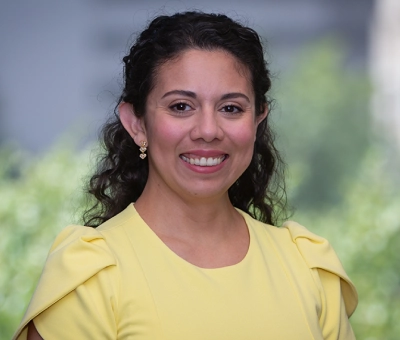
Carla Lopez, M.B.A., C.W.W.S.
Wellness Manager, Office of Employee Benefits
The University of Texas System
Does your role focus mainly on students, faculty, staff, guests, or some combination?
Combination between students, faculty and staff.
Why are you passionate about creating a smoke-free campus?
Because of the positive impact when promoting healthy campus communities. Enforcing smoke-free policies not only benefits students, faculty and staff but also communities.
What is one tobacco/vape control success - big or small, it's all important - that's happened on your campus in the last couple of years?
UT System-wide wellness challenges that support healthier lifestyles and encourage the adoption of wellbeing practices.
Please list any policy, prevention, or cessation programs you would like to highlight (this is an area to promote any of your programs):
I would like for all UT Living Well programs to be aware of best practices taking place across our institutions.
UT Living Well Program: https://www.utsystem.edu/offices/employee-benefits/living-well
Daneen Nastars, D.H.Sc., R.R.T., R.R.T.-A.C.C.S.
The University of Texas Medical Branch
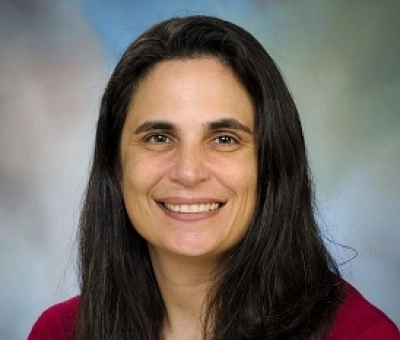
Daneen Nastars, D.H.Sc., R.R.T., R.R.T.-A.C.C.S.
Assistant Professor of Instruction and Program Director, Department of Respiratory Care
The University of Texas Medical Branch
Daneen Nastars is an Associate Professor of Instruction and Program Director in the Department of Respiratory Care in the School of Health Professions. She received a Bachelor of Science in Respiratory Care from Texas State University and a Master of Science in Clinical Practice Management from Texas Tech University.
Prior to teaching at UTMB, Ms. Nastars primarily worked as a Respiratory Therapist for ten years and as a Donation Clinical Specialist for an Organ Procurement Organization.
Hien Nguyen, Ph.D., M.Ed.
The University of Texas at Austin
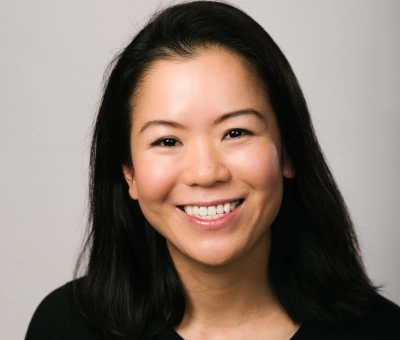
Hien Nguyen, Ph.D., M.Ed.
Project Manager, College Tobacco Initiative, Department of Kinesiology & Health Education
The University of Texas at Austin
Hien Nguyen is the Project Manager of the statewide Peers Against Tobacco program on The University of Texas at Austin's Tobacco Research and Evaluation (TRE) team. She has been in the tobacco control field for over four years across multiple initiatives, with responsibilities including program/grant management, community and stakeholder engagement, research and program evaluation. She especially enjoys working with college populations.
Does your role focus mainly on students, faculty, staff, guests, or some combination?
My focus is tobacco/nicotine prevention for college students.
Why are you passionate about creating a smoke-free campus?
I believe environmental factors, such as tobacco-free policies, have a strong impact on curbing student use and initiation.
Policy, prevention or cessation programs to highlight:
Peers Against Tobacco Texas Quitline for cessation resources.
Learn More: https://www.uttobacco.org/
Nosse Ovienmhada
The University of Texas at Austin
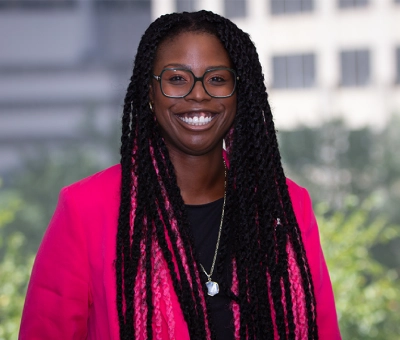
Nosse Ovienmhada
Worklife Balance & Wellness Manager
The University of Texas at Austin
Nosse Ovienmhada joined UT Austin as the Tobacco Free Campus Coordinator in Spring 2015. She joined the university with several years of experience working in the public and nonprofit sector on a variety of health policy issues. In 2019, she transitioned to the role of Work-life & Wellness Manager. Previous topics include implementation of environmental prevention strategies that prevent youth alcohol, tobacco, and other drug use. In her free time, Nosse enjoys afternoons at Zilker, crocheting, and hanging out with her Japanese Spitz dogs Suki and Mika.
Alexis Perez, M.P.H., C.H.E.S.
The University of Texas at Arlington
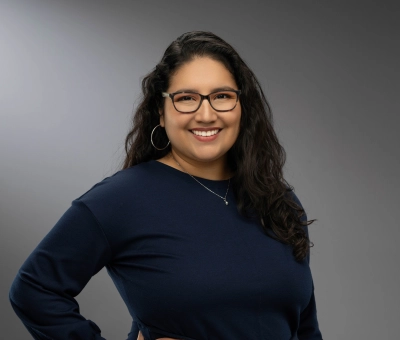
Alexis Perez, M.P.H., C.H.E.S.
Assistant Director, Health Promotion
The University of Texas at Arlington
Alexis Perez has worked in health education for nearly a decade in nonprofit and higher education settings. She is most proud of the student engagement her office maintains to best serve the Healthy Mavericks.
Does your role focus mainly on students, faculty, staff, guests, or some combination?
Students
Why are you passionate about creating a smoke-free campus?
I'm passionate about maintaining a smoke-free campus so that our Mavericks can thrive in a healthier environment.
What is one tobacco/vape control success - big or small, it's all important - that's happened on your campus in the last couple of years?
UT Arlington has been a smoke-free campus for many years—likely over a decade—and has seen a reduction in vaping in recent years.
Policy, prevention or cessation programs to highlight:
Live Free, Breathe Free smoking cessation sessions, led by our Alcohol, Tobacco and Other Drugs Prevention Specialist, offer students an opportunity to have open conversations and learn how tobacco and nicotine products can affect their own health and the well-being of their peers
Learn More: uta.edu/student-affairs/health-services/health-promotion/substance-misuse-prevention
Tiffany (Sunnie) Pope
The University of Texas Permian Basin

Tiffany (Sunnie) Pope
Mental Health & Wellness Coordinator
The University of Texas Permian Basin
Tiffany Pope is the Mental Health and Wellness Coordinator in the Counseling and Psychological Services Department at UTPB. In her first year in higher education, she is excited to contribute to the Collegiate Recovery Initiative on campus. Tiffany is dedicated to bringing a fresh, welcoming perspective to help this generation of students understand themselves and foster the true freedom they desire by cultivating a life of sobriety.
Does your role focus mainly on students, faculty, staff, guests, or some combination?
Mainly students, but a combination of all.
Why are you passionate about creating a smoke-free campus?
Most people I know have been negatively impacted by the damage caused by smoking, and I believe this is mainly due to not having real information about smoking products. I'm passionate about educating our campus on the dangers of smoking, especially because of its overall health effects. While most people are unaware of the true biological damage that occurs, they are even less aware of the mental damage that happens as well. Creating helpful ways for them to make the decision to quit is an honor, and I’m privileged to be part of that process.
What is one tobacco/vape control success - big or small, it's all important - that's happened on your campus in the last couple of years?
We put flyers out to the majority of our incoming 2025 fall students with cessation information.
Learn more: https://www.utpb.edu/life-at-utpb/health-and-wellness/
Kimberly Pounds, Dr.P.H.
Texas Southern University
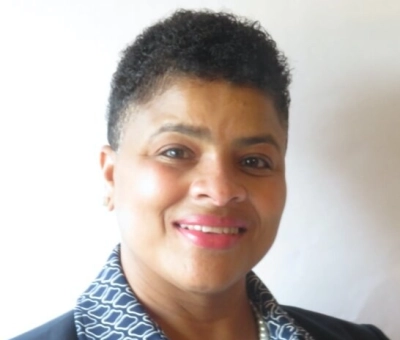
Kimberly Pounds, Dr.P.H.
Assistant Professor
Texas Southern University
Does your role focus mainly on students, faculty, staff, guests, or some combination?
Students
Why are you passionate about creating a smoke-free campus?
I have personal experience with the impact of smoking on one's health. I care about the students and their potential to serve the greater community once they graduate. Helping them achieve the best health outcomes helps to ensure that they will be able to lead in their role as citizens and professionals.
What is one tobacco/vape control success - big or small, it's all important - that's happened on your campus in the last couple of years?
The creation of the task force was a great way to increase students, faculty, staff and administrators' awareness of the flaws in our current policy. We were able to identify champions for creating a tobacco free campus.
Caroline Puckett
UT Health San Antonio
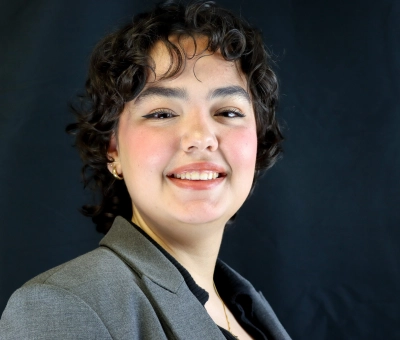
Caroline Puckett
Research Area Specialist
UT Health San Antonio
Caroline joined the Institute for Health Promotion Research at UT Health San Antonio in the beginning of 2023 as a Research Area Specialist. She also supports the Mays Cancer Center's community outreach and engagement efforts. She is currently working towards her masters degree in Health, Community, and Policy at The University of Texas at San Antonio with a focus on Data Analytics and Population Health. Caroline is passionate about addressing health disparities among minority groups related to cancer, tobacco use and healthcare access. She hopes to use her master's degree and work experience to contribute meaningfully to research in these areas.
Does your role focus mainly on students, faculty, staff, guests, or some combination?
My role focuses on a combination of students, faculty and staff.
Why are you passionate about creating a smoke-free campus?
I am passionate about creating a smoke-free campus to ensure that all students, faculty and staff can thrive in an environment supportive of their physical and mental wellbeing, free from the harmful effects of tobacco use.
What is one tobacco/vape control success - big or small, it's all important - that's happened on your campus in the last couple of years?
Our Tobacco and Smoke-Free Policy definitions at UTHSCSA have expanded to include electronic smoking devices. “Smoking” is now defined as “the use of an electronic smoking device that creates an aerosol or vapor, in any manner or in any form or the use of any oral smoking device for the purpose of circumventing the prohibition of smoking in this policy.”
Amelie Ramirez, Dr.P.H., M.P.H.
The University of Texas Health Science Center at San Antonio
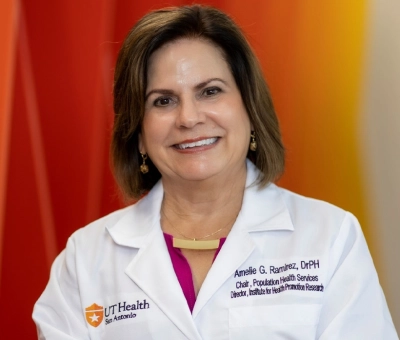
Amelie Ramirez, Dr.P.H., M.P.H.
Director of Institute for Health Promotion Research, Chair of the Department of Population Health Sciences, Associate Director of Cancer Outreach and Engagement at Mays Cancer Center
The University of Texas Health Science Center at San Antonio
U.S. Latinos face a troublingly higher risk of disease—from obesity and diabetes to certain cancers—than their non-Latino peers. These health disparities exist for many reasons, including cultural, socioeconomic, and environmental factors. Dr. Amelie G. Ramirez is director of the Institute for Health Promotion Research (IHPR), chair of the Department of Population Health Sciences, and associate director of cancer outreach and engagement at the Mays Cancer Center, all at UT Health San Antonio. The IHPR, founded in 2006, investigates causes and solutions to cancer and chronic disease disparities to improve Latino health in San Antonio, South Texas and the nation. The IHPR has a faculty and staff of researchers who specialize in population health, prevention and screening, and health promotion and communication in issues of obesity, cancer, tobacco, nutrition, physical activity, and more among Latino and underserved populations. The IHPR’s official charter is to: conduct research, interventions and outreach projects on health disparities and health equity; train scientists and mentor students; and communicate findings and tools with researchers, academics and advocates using websites, social media, news media, public service announcements, scientific articles and reports, and more. The IHPR is the headquarters for Salud America!, a national program that uses innovative, evidence-based research and communications to educate and activate an online network of more than 300,000 advocates to promote healthy change and equity for Latino and all families (www.salud-america.org; @SaludAmerica on Twitter, Facebook, Instagram, and YouTube). Salud America! synthesizes research findings and data into culturally and linguistically relevant dissemination of health awareness-building content, role model stories and videos to stimulate health behavior changes and lay-friendly tools and action opportunities to drive grassroots system and policy changes. In addition, the IHPR has led studies on patient navigation, cancer screening and clinical trial enrollment, and incorporating the latest mobile technologies—smartphone apps, text messaging programs, and social media innovations—to improve health behaviors among Latinos, including a bilingual messaging service to help young adults quit smoking (https://quitxt.org/). Dr. Ramirez also has personally trained and/or mentored over 300 Latino undergraduate and pre- and post-doctoral students, as well as early-career faculty members, instructing about research design, methods, data analysis, and career development. Dr. Ramirez’s recognitions include 2007 election to the National Academy of Medicine, 2011 White House “Champion of Change,” 2014 Everett M. Rogers Public Health Communication Award from APHA, and 2019 Lifetime Achievement Award from the Society of Behavioral Medicine. Dr. Ramirez is on the San Antonio Mayor’s Fitness Council and is President of The Academy of Medicine, Engineering and Science of Texas from January 2019 to January 2021. Dr. Ramirez, a native of Laredo, Texas, earned MPH and DrPH degrees from UT Health Science Center at the Houston School of Public Health
Gabriel Ramos
The University of Texas at Arlington
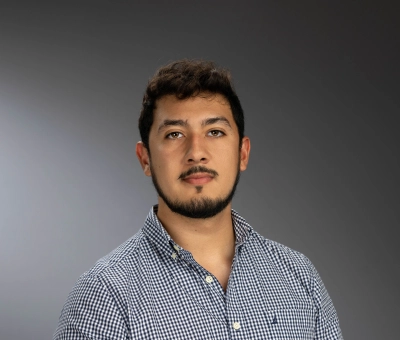
Gabriel Ramos
Prevention Specialist, Alcohol, Tobacco and Other Drugs
The University of Texas at Arlington
Gabriel Ramos has experience developing and leading initiatives in health education, substance use prevention and peer engagement. He has three years of experience in drug prevention within a nonprofit environment, working in both inpatient and outpatient settings, supporting individuals through education, recovery and community-based prevention initiatives. Through his studies and professional work, he strives to bridge research and practice to create supportive, inclusive environments where students can thrive. He is now focusing on student wellness in higher education.
Does your role focus mainly on students, faculty, staff, guests, or some combination?
A combination of students and guests.
Why are you passionate about creating a smoke-free campus?
Years of prevention work have taught me the importance of living a drug free life. Substance use not only compromises health but also undermines essential life skills such as socialization, competence and independence. A smoke-free campus promotes a healthier environment and offers students positive alternatives that support, not hinder, their personal and professional growth.
What is one tobacco/vape control success - big or small, it's all important - that's happened on your campus in the last couple of years?
As a newly hired staff member at UT Arlington, I have been actively promoting Peers Against Tobacco (PAT) initiatives to raise awareness about the dangers of tobacco and vaping. I also engage students by testing their knowledge about the harmful chemicals found in vapes and discussing how these substances can impact not only their health but also the well-being of those in their close circle.
Learn More: uta.edu/student-affairs/health-services/health-promotion/substance-misuse-prevention
Jason D. Robinson, Ph.D.
The University of Texas MD Anderson Cancer Center
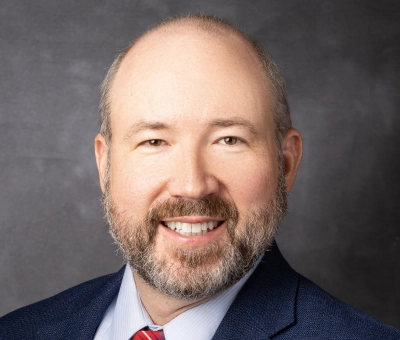
Jason D. Robinson, Ph.D.
Professor, Department of Behavioral Science Executive Director, Tobacco Research & Treatment Program
The University of Texas MD Anderson Cancer Center
Dr. Jason D. Robinson is a Professor in the Department of Behavioral Science at The University of Texas MD Anderson Cancer Center and Executive Director of its Tobacco Research and Treatment Program. As a clinical psychologist, he has pursued research in the use of genetics to identify nicotine dependence phenotypes, the stress hormone response to tobacco use disorder (TUD), the treatment of nicotine dependence among at-risk populations, and new drug development for the treatment of TUD. More recently, Dr. Robinson has engaged in research evaluating the potential risks and benefits of alternative nicotine products, including electronic cigarettes and nicotine pouches.
Does your role focus mainly on students, faculty, staff, guests, or some combination?
I have content expertise in tobacco treatment research.
Why are you passionate about creating a smoke-free campus?
I am passionate about creating smoke-free campuses because I believe that everyone deserves to be in an environment that promotes health and well-being. Smoking remains the leading cause of preventable disease and death and secondhand smoke exposes others to its harmful toxicants. By promoting smoke-free campuses, we not only reduce exposure to these toxic substances but also foster cultures that support healthier choices, reduce the development of addiction, and encourage those who want to quit.
What is one tobacco/vape control success - big or small, it's all important - that's happened on your campus in the last couple of years?
In January 2025, we published a study in the journal JAMA Internal Medicine that showed that combining medication (nicotine replacement or prescription medication) with intensive counseling by tobacco treatment specialists significantly improved smoking cessation rates among patients undergoing lung cancer screening compared to those referred to a quitline and receiving either NRT or medication prescribed by a lung cancer screening clinician.
Policy, prevention or cessation programs to highlight:
At MD Anderson Cancer, our Tobacco Research and Treatment Program (TRTP) provided treatment, free of charge, to over 6,000 unique patients, family members, and employees in 2024 alone.
Learn more: https://faculty.mdanderson.org/profiles/jason_robinson.html
Alicia Rosas, M.P.H., C.H.E.S.
Texas State University
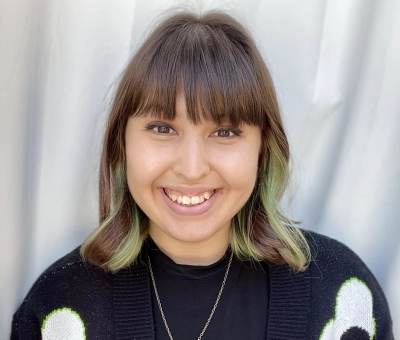
Alicia Rosas, M.P.H., C.H.E.S.
Health Promotion Specialist
Texas State University
Alicia Rosas is a Health Promotion Specialist at Texas State University. In this role, she serves as an Advisor for a health education student organization, Healthy Cats, and works to design and implement programs and strategies to keep the Texas State community healthy. She previously served as the Youth Engagement Specialist at Texans for Safe and Drug-Free Youth, a statewide nonprofit organization focused on youth substance use prevention. Additionally, Alicia serves as a volunteer on various statewide and national youth leadership teams, including Hugh O’Brien Youth Leadership (HOBY) and Extreme Youth Leadership (EYL). She received her undergraduate education in Community, Family, and Addiction Sciences and Youth Development from Texas Tech University and is currently pursuing a Master of Science in Public Health Education and Promotion from Texas State University. Alicia also formerly served as a Teen Ambassador and Consultant with the TxSayWhat! program and campus representative for Peers Against Tobacco.
Does your role focus mainly on students, faculty, staff, guests, or some combination?
Combination, primarily students
Why are you passionate about creating a smoke-free campus?
I got my start in public health as a volunteer in tobacco control and prevention. I really feel passionate that institutes of higher education should be safe and healthy spaces for students to learn and connect and not spaces where they feel like their health is at risk.
What is one tobacco/vape control success - big or small, it's all important - that's happened on your campus in the last couple of years?
This past year, our Health Promotion Services office collaborated with local nonprofit Cenikor to reduce tobacco litter around the campus and community with a cleanup day.
Policy, prevention or cessation programs to highlight:
We host a Student Recovery Alliance to support students in recovery from alcohol, other drugs or any co-occurring disorders. This weekly support meeting provides a network of resources and peers for students to connect to in their recovery journey. Many students have noted that this support system has helped with their recovery from substances like alcohol and other drugs, as well as nicotine/electronic nicotine products.
Learn more: healthcenter.txst.edu/hps.html
Matthew Rossheim, Ph.D., M.P.H., C.P.H.
The University of North Texas Health Science Center
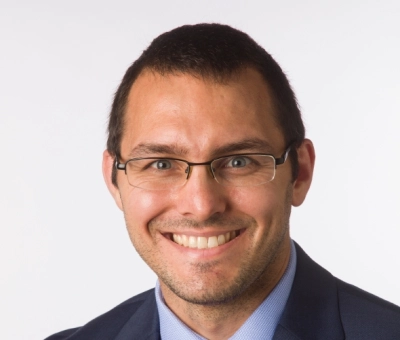
Matthew Rossheim, Ph.D., M.P.H., C.P.H.
Associate Professor of Public Health
The University of North Texas Health Science Center
Does your role focus mainly on students, faculty, staff, guests, or some combination?
I teach classes in the MS/PhD program and conduct public health research related to alcohol, tobacco and cannabis prevention and control.
Why are you passionate about creating a smoke-free campus?
Tobacco-free campus policies help save money, save lives, and create a more inclusive working and learning environment for everyone on campus
What is one tobacco/vape control success - big or small, it's all important - that's happened on your campus in the last couple of years?
I helped get the existing UNTHSC tobacco policy added to the ANRF list of 100% tobacco-free campus policies
Learn more: https://www.unthsc.edu/school-of-public-health/dr-matthew-rossheim/
Rolando Segovia
The University of Texas Rio Grande Valley
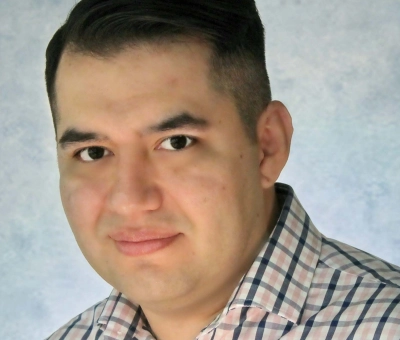
Rolando Segovia
Coordinator, Employee Engagement and Wellness
The University of Texas Rio Grande Valley
Rolando Segovia began his professional career at the University of Texas Rio Grande Valley (UTRGV) in 2013, initially serving as a Salary Administrator in the Human Resources department before advancing to the role of Benefits Representative. He currently serves as the Employee Engagement and Wellness Coordinator. In 2019, he earned a Bachelor of Fine Arts with a specialization in Graphic Design.
Does your role focus mainly on students, faculty, staff, guests, or some combination?
Staff and faculty
Why are you passionate about creating a smoke-free campus?
Eliminating smoking and vaping on campus protects everyone from the dangers of secondhand smoke and aerosols. This is especially important for students, faculty, and staff with respiratory conditions, such as asthma. By creating a smoke-free environment, we're not only promoting a healthier lifestyle but also directly reducing health risks for the entire campus community. A smoke-free campus sends a powerful message that the health of its members is a top priority. It encourages healthier habits and can provide a more supportive environment for those who are trying to quit smoking or vaping. It reduces litter from cigarette butts, which are a major source of pollution. It also ensures that outdoor spaces, from walking paths to green areas, are clean and enjoyable for everyone. In short, a smoke-free campus isn't just about rules; it's about building a healthier, cleaner, and more supportive community for everyone.
What is one tobacco/vape control success - big or small, it's all important - that's happened on your campus in the last couple of years?
We are pleased to celebrate our tenth anniversary as the University of Texas Rio Grande Valley (UTRGV) and our ten-year commitment to maintaining a tobacco-free campus environment. As part of the UTRGV Proud to be Tobacco-Free initiative, we are enhancing and renewing campus signage and markings, while also advancing the development of the university’s tobacco-use policy.
Policy, prevention or cessation programs to highlight:
We're proud of our Keep UTRGV Tobacco Free campaign, the campus online reporting tool, and the university’s tobacco-free policy.
Learn more: https://www.utrgv.edu/human-resources/current-employee/employee-wellness/tobacco-cessation/index.htm
Darrien Skinner, M.S.
The University of Texas MD Anderson Cancer Center
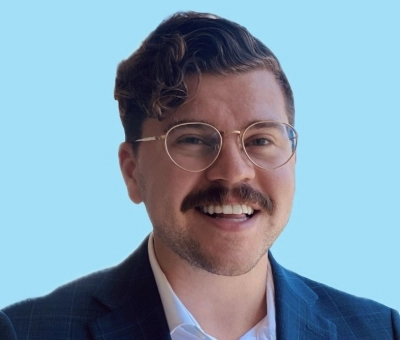
Darrien Skinner, M.S.
Program Manager, EndTobacco™ Program
The University of Texas MD Anderson Cancer Center
Darrien Skinner has joined MD Anderson as the new Program Manager of the EndTobacco™ Program. Darrien comes from the Texas Targeted Opioid Response program at Texas HHS, where he spearheaded prevention programs to support schools addressing the opioid crisis through increased education, safe drug disposal resources, and overdose reversal medication – naloxone. Prior to HHS, he was the Special Projects Coordinator for the Tobacco Control Branch at Texas DSHS. Darrien holds a master’s degree in Health Behavior and Health Education from UT Austin and a Public Relations degree from Texas State University. During graduate school, he worked on the Peers Against Tobacco program at the Tobacco Research and Evaluation Lab at UT Austin and was a Senate intern during the 86th Texas Legislative Session. Darrien was awarded 2013 Youth Advocate of the Year by Campaign for Tobacco-Free Kids for his involvement in tobacco control during high school when he served as a Teen Ambassador on the Say What! Youth tobacco prevention program at Texas School Safety Center. He was also a Truth Fellow.
Eric Solberg, M.S.
The University of Texas System Administration
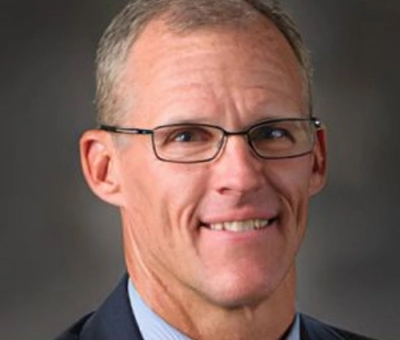
Eric Solberg, M.S.
Associate Vice Chancellor, Office of Health Affairs
The University of Texas System Administration
Eric Solberg is the Associate Vice Chancellor for The University of Texas System Office of Health Affairs. He serves as the primary liaison to the UT System Faculty Advisory Committee (and the Faculty Burnout Working Group), Student Advisory Committee, Advisory Committee on Library Affairs, the Office of Institutional Research and Accountability, the deans of medicine and nursing across the UT System, and the Texas Medical Association’s Council on Medical Education.
Prior to his service to the UT System’s Office of Health Affairs, Eric served three major institutions within the Texas Medical Center over 30 years, including leadership roles at the University of Texas MD Anderson Cancer Center and most recently serving as Senior Vice President for Academic & Research Affairs at UTHealth Houston, where he also served as Associate Dean for their Graduate School of Biomedical Sciences. He maintains an adjunct appointment with the McGovern Center.
Brad Stewart, M.B.A., M.Ed.
Texas Christian University
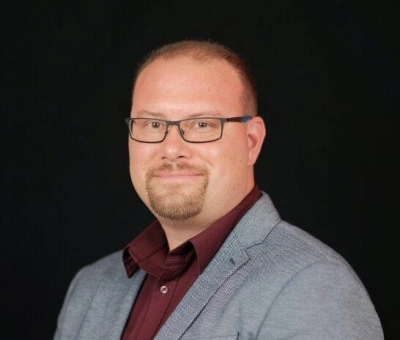
Brad Stewart, M.B.A., M.Ed.
Associate Director, Fitness & Wellness Education
Texas Christian University
Does your role focus mainly on students, faculty, staff, guests, or some combination?
Mainly student focused, but a combination of programming for all members of the TCU community
Why are you passionate about creating a smoke-free campus?
I am passionate about creating a healthy and supportive environment for all individuals to thrive on campus free from negative health or other impacts to their success.
What is one tobacco/vape control success - big or small, it's all important - that's happened on your campus in the last couple of years?
TCU moved to be 100% tobacco-free 4 years ago and we have continued to modify and strengthen the policy since then. Most recently, strengthening the policy to prohibit ENDS use in all residential halls on campus.
Learn more: Tobacco Free TCU
Juanita Strube
The University of Texas at Arlington
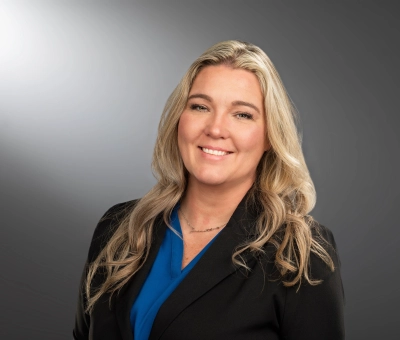
Juanita Strube
Director, Client Services
The University of Texas at Arlington
Juanita Strube is a dynamic People Services Director with 19+ years of HR experience leading high-impact teams and streamlining processes across onboarding, benefits and records management. She's passionate about building engaging employee experiences, solving problems creatively and driving continuous improvement. Known for blending traditional values with forward-thinking solutions, she leads with authenticity, innovation and a people-first mindset.
Does your role focus mainly on students, faculty, staff, guests, or some combination?
My current role focuses mainly on faculty, staff and retirees. Our student division focuses on students.
Why are you passionate about creating a smoke-free campus?
I’m passionate about creating a smoke-free campus because it promotes a healthier, cleaner and more inclusive environment for everyone. It supports wellness, protects non-smokers from secondhand smoke and encourages positive lifestyle choices. It’s about building a community where everyone can thrive.
What is one tobacco/vape control success - big or small, it's all important - that's happened on your campus in the last couple of years?
One success we've seen is increased student engagement around the smoke-free policy — especially through peer-led wellness initiatives. Students have started leading awareness campaigns, handing out quit resources and using social media to normalize a tobacco-free lifestyle. That grassroots involvement has made the message more relatable and helped shift campus culture in a big way.
Policy, prevention or cessation programs to highlight:
UT Arlington has upheld a tobacco‑free campus policy since 2011, which bans all tobacco and nicotine products—including vaping devices, smokeless tobacco, cigars, e‑cigs, etc.—everywhere on all main and satellite campuses. Noncompliance may lead to disciplinary action, including referrals under student and employee codes of conduct.
Peers Against Tobacco (PAT) – This peer-led initiative empowers students to educate peers, prevent use and normalize quitting. PAT members deliver campus awareness, host events and promote a smoke‑free culture.
Breathe Free Sessions – Workshops where students develop personalized quit plans with resources and support tailored for tobacco or vaping cessation.
Substance Misuse Prevention – UT Arlington offers programs like BASICS & CASICS (Brief Alcohol and Cannabis Screening/Intervention), which address harm reduction around alcohol, cannabis and similar risk behaviors. These sessions promote healthier decisions and coping mechanisms, indirectly reinforcing tobacco avoidance.
Learn more: https://www.uta.edu/hr
Taylor Tran, R.D., L.D.
The University of Texas at Dallas
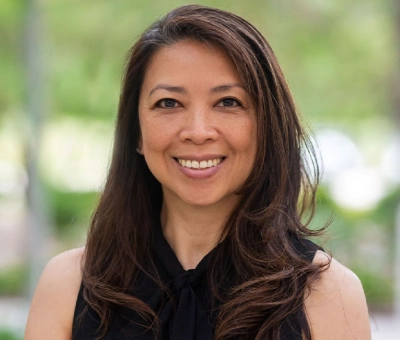
Taylor Tran, R.D., L.D.
Employee Health Program Manager
The University of Texas at Dallas
Does your role focus mainly on students, faculty, staff, guests, or some combination?
Taylor is the staff/faculty dietitian, manages the Employee Wellness program and serves on the Campus Wellness Committee.
What is one tobacco/vape control success - big or small, it's all important - that's happened on your campus in the last couple of years?
Taylor was a member of the task-force that led to UT Dallas becoming a tobacco-free campus.
Policy, prevention or cessation programs to highlight:
Taylor provides nutrition and health education through one-on-one counseling, health and wellness fairs and lunch and learns. Taylor also works with the HR Benefits team to implement the UT System Living Well programs and helps to coordinate UTD’s participation in the City of Richardson’s Corporate Challenge.
Learn more: Living Well
Julie A. Van Orden, M.H.A.
UTHealth Houston
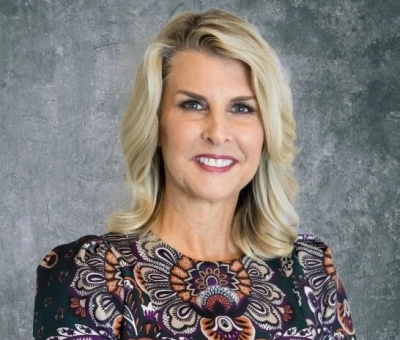
Julie A. Van Orden, M.H.A.
Sr. Program Manager, Wellness
UTHealth Houston
Does your role focus mainly on students, faculty, staff, guests, or some combination?
Faculty and staff
Why are you passionate about creating a smoke-free campus?
I believe, as a Health Science Center, we must lead by example.
Tamara Venters, C.H.W.-I., C.H.W., C.H.E.S.
UT Southwestern Harold C. Simmons Comprehensive Cancer Center

Tamara Venters, C.H.W.-I., C.H.W., C.H.E.S.
Program Manager, Public Education Community Outreach
UT Southwestern Harold C. Simmons Comprehensive Cancer Center
Tamara Venters graduated from the University of North Texas with a Bachelor of Science in Health Promotion. As a community health worker, community health worker instructor, and certified health education specialist (CHES), she brings over 14 years of experience in health education. Tamara has worked with Baylor Scott and White Health System, the University of North Texas, and MHMR of Tarrant County. Now, as a new employee of UT Southwestern, she looks forward to contributing to the committee and advancing its mission.
Does your role focus mainly on students, faculty, staff, guests, or some combination?
Combination
Why are you passionate about creating a smoke-free campus?
I am passionate about creating a smoke-free campus because, with my degree in health promotion, I have dedicated my career to implementing prevention techniques across the spectrum. My goal has always been to enhance the quality of life for the communities I serve. Promoting a smoke-free environment is a crucial step in preventing tobacco-related illnesses and fostering a healthier, more vibrant community. By advocating for a smoke-free campus, I aim to protect individuals from the harmful effects of secondhand smoke, encourage healthier lifestyle choices, and create a supportive environment where everyone can thrive.
What is one tobacco/vape control success - big or small, it's all important - that's happened on your campus in the last couple of years?
We are enlisting fellows from UTSW’s Addiction Psychiatry program to provide tobacco treatment alongside Medical Director Dr. David Balis. This expands our physician capacity with great return on investment.
Please list any policy, prevention, or cessation programs you would like to highlight (this is an area to promote any of your programs):
The Harold C. Simmons Comprehensive Cancer Center continues to provide tobacco treatment at no cost to our community. Our program is comprised of two Tobacco Treatment Specialists and medical professionals. We work with our Employee Wellness coordinator to share program information at employee benefits fairs. We are also equipping our Community Advisory Board to engage in local smokefree efforts via presentations from Charlie Gagen (ALA) and training in how to write Op Eds (Dr. Scott Walters)
Jessica Waguespack, M.S., C.H.E.S.
Stephen F. Austin State University
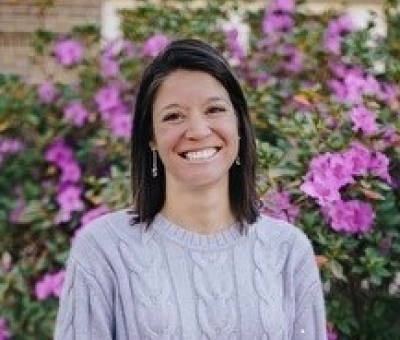
Jessica Waguespack, M.S., C.H.E.S.
Program Director, Student Wellness
Stephen F. Austin State University
Does your role focus mainly on students, faculty, staff, guests, or some combination?
Students
Why are you passionate about creating a smoke-free campus?
I am an advocate for health and well-being as well as wanting to give our community the tools and resources to be "well." We can make a positive impact on students, faculty, and staff members as well as visitors' own health and well-being. We can do this by creating a tobacco and vape free campus. In addition, I believe the cleanliness and beautification of our campus is positively impacted as a connection to the reduction of tobacco product packaging. Who wouldn't want a healthier campus community, as well as a more beautiful one!?
What is one tobacco/vape control success - big or small, it's all important - that's happened on your campus in the last couple of years?
It's definitely been more than a couple of years, but I think it's had such a big impact. In 2015, our campus moved from prohibiting smoking in and within 20 feet of any building or facility to adopting a policy of being fully tobacco and vape free. Vapes at that time were not as prevalent as they are now, so that we had the foremind to add that addition, has made such a positive impact to our campus community.
Please list any policy, prevention, or cessation programs you would like to highlight (this is an area to promote any of your programs):
Smoking, Vaping and Use of Tobacco Products policy that allowed us to be tobacco and vape free since 2015. I have also overseen our Peers Against Tobacco program since 2016. We went through a reorganization, which allowed me to focus more fully on alcohol and other drug programming.
Learn more: https://www.sfasu.edu/thehub/
Takova Wallace-Gay, Pharm.D., B.C.A.C.P.
The University of Texas at Tyler
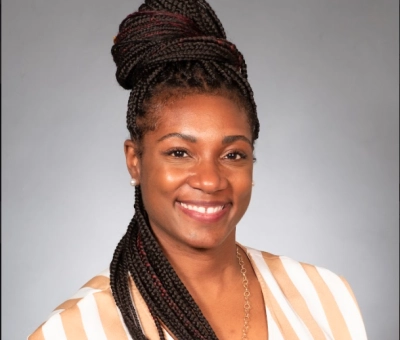
Takova Wallace-Gay, Pharm.D., B.C.A.C.P.
Associate Professor, Director, Interprofessional Education
The University of Texas at Tyler
Takova D. Wallace-Gay is a clinical associate professor in the Departments of Medical Education, Fisch College of Pharmacy, and Family Medicine Clinic at The University of Texas at Tyler. With professional interests in diabetes, cardiovascular disease and interprofessional education, she works to assist underserved community members and educate medical and pharmacy students in various aspects of the curriculum.
Does your role focus mainly on students, faculty, staff, guests, or some combination?
Students and Faculty
Why are you passionate about creating a smoke-free campus?
I have witnessed the effects of individuals getting involved in smoking various products early in life and not being able to reverse the negative effects of that. I appreciate the opportunity to provide education in this area.
What is one tobacco/vape control success - big or small, it's all important - that's happened on your campus in the last couple of years?
Increased number of student-led events and collaborations. Increased signage on campus.
Contact
Program Manager: Darrien Skinner
Summit
Eliminate Tobacco Use Texas held a summit on March 7, 2025. Learn more.